There is a lot of misinformation being spread about Nigerian food, here are some fallacies that I have come across recently:
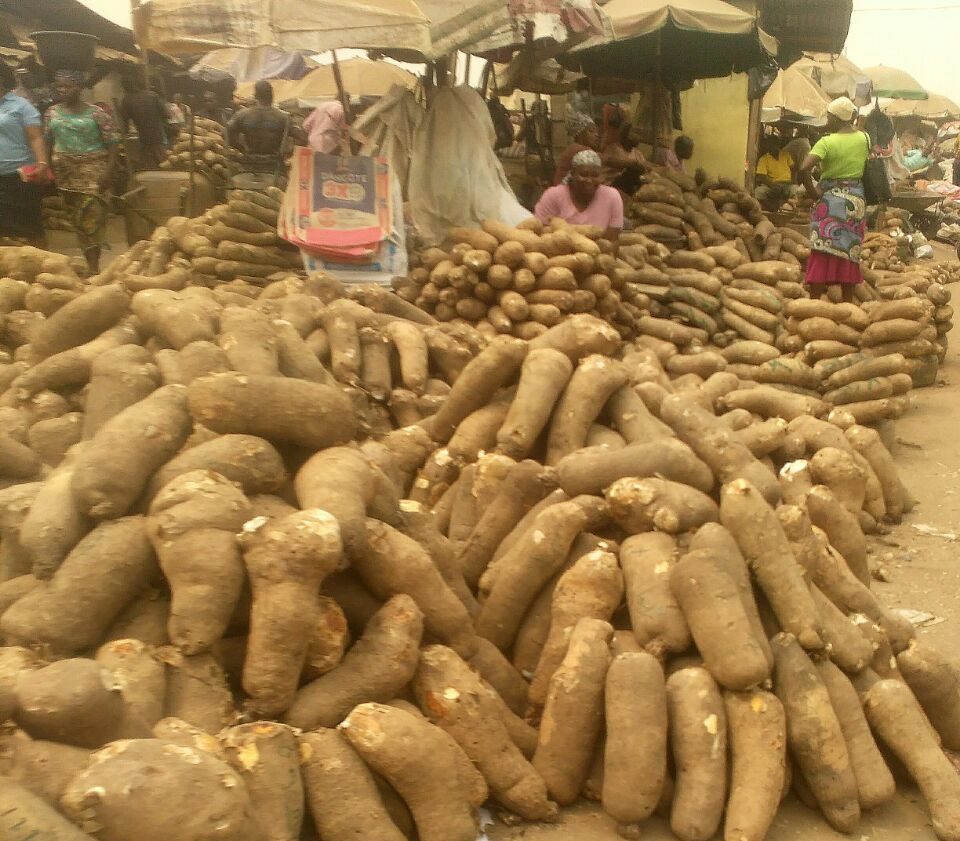
Yams at the market. A staple Nigerian food.
Nigerian food is all organic – This is very far from the truth. Nigeria is actually one of the hardest places to find organic food. Fertilizers, pesticides and herbicides are widely used and not regulated. Anybody can buy pesticides, many of which have been banned in other countries, and apply them anywhere. There’s nothing stopping chemical use on riverbank farms, nothing to protect our waterways from contamination, nothing to ensure local populations are not poisoned by uneducated or uncaring farmers. When I was young and used to range far and wide, hunting and fishing off the beaten track in Nigeria, I occasionally came across ponds and streams that had been deliberately poisoned with Gamalin 20, (a pesticide used by cocoa farmers) to kill the fish. The poisoned fish were subsequently sold to the unwary. Years later, I would still sometimes detect the distinctive smell of this poison on fresh fish for sale in the market. Wild-caught fish are the epitome of organic food and to poison them is possibly the worst example of ignorance at play. The ignorance is not confined to rural areas. A well-educated, friend of a friend recently claimed to be raising organic chickens in Lagos. I was so impressed. When I asked where they found organic corn or other grains to mill into feed, and how they could afford the real estate for chickens to run free with Lagos property prices, she said, “Our chickens are in cages and is there such a thing as organic corn?” Generally speaking, food in Nigeria is rarely organic. We do have a body working to spread or facilitate organic farming in Nigeria, it is NOAN, Nigerian Organic Agriculture Network and they are based in Ibadan. Beyond the farm as well, dangerous chemicals are often used and abused for preserving food by the unscrupulous or uneducated. In 2015, the EU banned the importation of several food items from Nigeria due to excessive levels of poisons in the food.
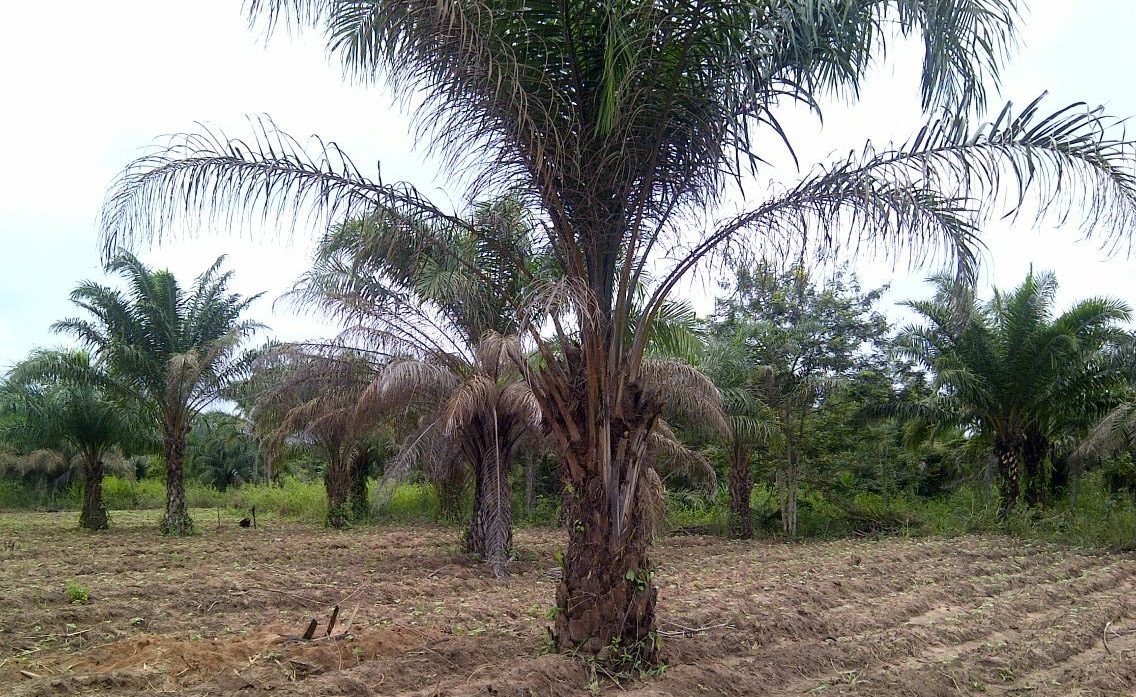
Palm trees for palm oil production.
Palm Oil is unhealthy – Wrong! Especially wrong when you consider what people are replacing it with. Like any other fat, palm oil is a source of calories and as such, eating unlimited amounts would have consequences. It is also somewhat high in saturates so moderation as part of a balanced diet makes sense. Compared to most other oils though, Palm oil is high in Omega 3 fats and low in Omega 6 fats, this is a good thing. Without boring you to death with the science, it is now known that where the Omega 6 fats are much more than the Omega 3 fats in a diet, (as is the case in the USA in the last few decades)there is a marked increase in inflammatory diseases like; cardiovascular disease, type 2 diabetes, irritable bowel syndrome, inflammatory bowel disease, rheumatoid arthritis, asthma, cancer, autoimmune diseases. A nice peppery soup with palm oil and mackerel or other wild-caught fish is a truly healthy option. (just watch the swallow portion sha. . .)
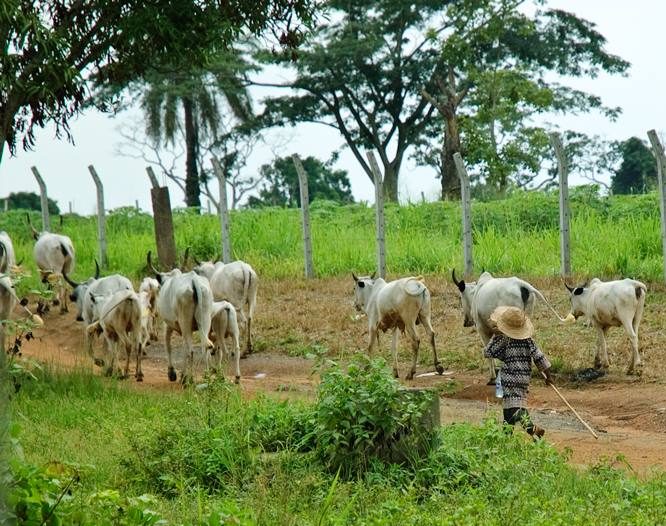
Grazing cattle in Nigeria.
Fish and chicken are healthier than red meat – Not necessarily. This one is not as straightforward, it depends on where you are and also on the provenance of the meat in question, so I will break this down for folks at home as well as in diaspora. In Nigeria, it is only possible for this blanket statement to be true; if the fish is wild caught (from water that runs far from humanity) and not some factory-farmed catfish or tilapia and if the chicken is proper village free-range, then it will be as healthy or in the case of fish, slightly healthier for you than red meat. The truth is that there’s absolutely nothing wrong with red meat in Nigeria. To my knowledge, nobody is factory farming beef, goats or sheep at present. These animals lead a fairly natural life, grazing natural food (nobody is spending money spraying chemicals on grass) free from growth hormones and routine medication. If however, you reject grass-fed beef or goat in favour of ’point and kill’ (farmed catfish) or cage-raised chicken, you are deceiving yourself. You will be ingesting hormones and medication from an unregulated industry with serious health implications. In the UK, Europe and the USA, if you eat organic meat and wild-caught fish you will be OK with red meat, poultry and fish. In the UK and Europe, there are some things worth knowing if you can’t find or afford organic meat. Lamb and mutton is not factory farmed. It doesn’t respond well to anything other than lots of space and grass to eat. Beef is also generally grass-fed, with hay in the winter. This makes them perfectly healthy meat for us to eat. (Grass-fed animals are rich in good Omega 3 fats) One does have to pay attention to fish and chicken. If you eat tilapia in Europe, it was most likely raised in a pit, somewhere like Vietnam, is likely to be genetically modified, fed testosterone and possibly human or animal waste and heavily medicated. Good luck!
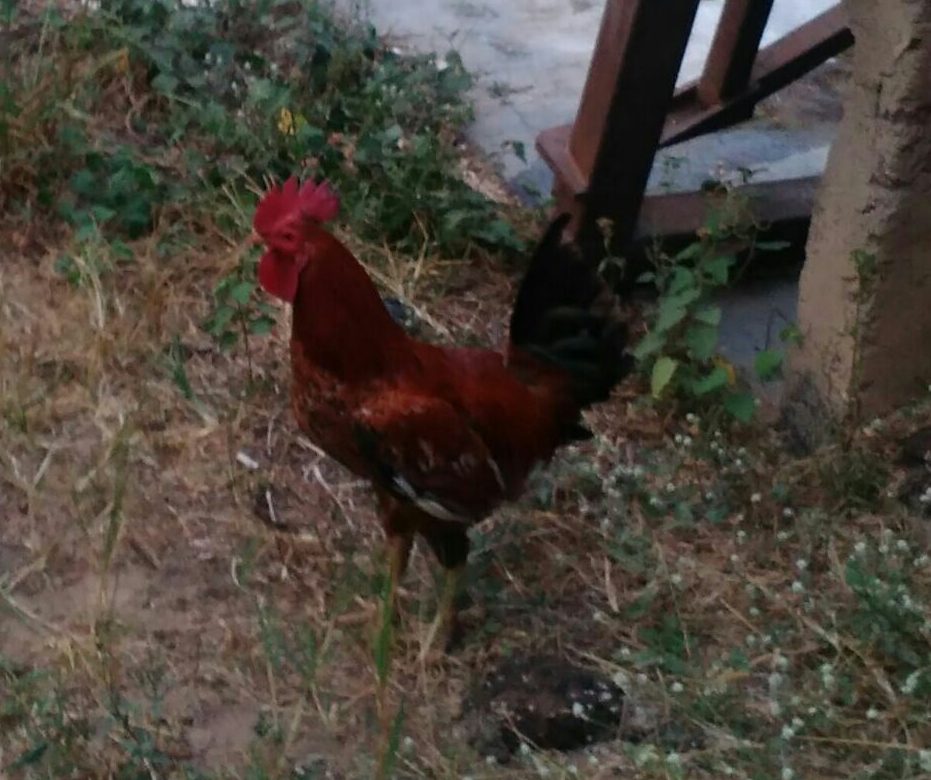
Local free range chicken.
Regarding chicken in Europe, Nigerians love to buy ‘boilers’ from Halal butchers because they are tough and don’t disintegrate in our soups. Bad news; these scrawny birds are retired layers, they have lived in cages, been fed calcium supplements for eggshell development, fertility enhancing hormones for unnatural egg production and antibiotics and other meds to stop them dying from their terrible cage conditions. Healthy boilers can be found, just ask any good butcher to source them for you. Request a rooster just to be doubly sure.
Finally, in the USA, there are problems with beef as well as chicken. The simple fix is to eat organic pasture raised.(Grass fed and Grass finished for beef) America is unique in that it is a modern western country but money can overtly buy legislation that acts against the best interests of the populace. President Obama, in 2016, signed into law, The DARK act. This legislation, so named because it “Denies Americans the Right to Know” means Nigerians in America need to pay serious attention to what you eat because your food providers can legally sell you anything without telling you what you’re eating.
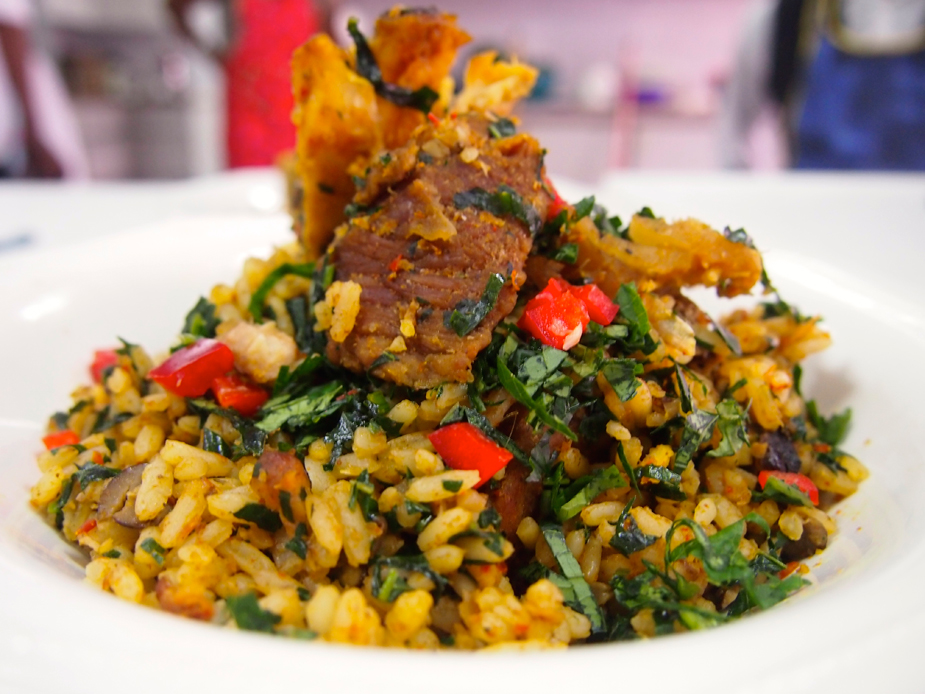
Native Jollof. Photo credit: The Executive Mama Put
Rice is healthier than swallow. Nope! Any source of starch is pretty much the same from a macro-nutrition point of view. This applies only to
white rice. Brown rice is significantly more nutritious than white rice as well as most types of swallow. Generally speaking, swallow is more likely to be accompanied by extremely healthy green leaf vegetables and/or okro (AKA okra) and that makes a good case for it being the healthier option.
Wetin you dey chop?
Major Abs’ takeaway:
 Question everything!
Question everything!
We all want to be healthy but not everybody can be, or even wants to be a foody. By my estimate, more than half of what is generally believed about food is outdated or just plain wrong.
If your ‘healthy choices’ are not yielding immediate results, investigate. Google, read several different opinions and seek the central truth of the matter. Don’t just keep doing something that doesn’t work.
Alternatively, Subscribe to our mailing list to be kept well-informed. Subscribers can also email questions for expert answers.

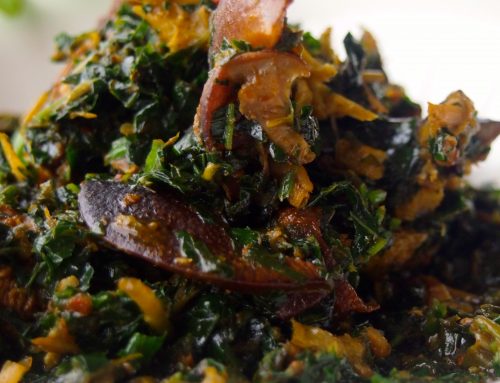

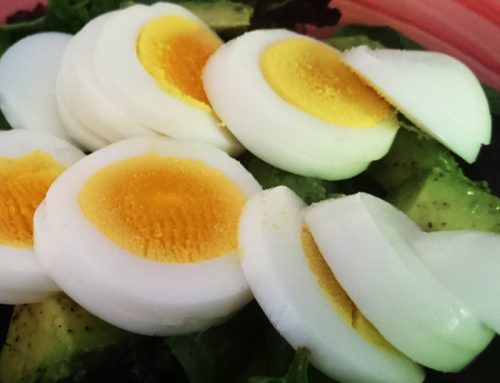


[…] One last note about hormones. Hormones are widely used in factory farming. Fish-farms use them to change the gender of fish, egg producers use them to increase fertility, meat producers use them to enhance growth. Anybody in or near menopause should avoid any chance of unknown extra hormones in their diet. I always advocate eating organic meat and wild-caught fish. If you are in or near menopause, THIS IS DOUBLY IMPORTANT FOR YOU! Seriously, if you can’t afford to eat organic, make meat or fish a special treat and eat it once a week. If you are thinking that in Nigeria, you’re safe, don’t be deceived! Read this ARTICLE […]
Thanks for this 👊🏿👊🏿👊🏿